How Does Allyte 1% Gel Work?
Allyte 1% Gel contains Clindamycin, which belongs to the lincosamide class of antibiotics. It works by inhibiting bacterial protein synthesis, thereby preventing the growth of Propionibacterium acnes, the bacteria responsible for acne.
This gel not only reduces bacterial growth but also helps control inflammation, redness, and swelling associated with acne. By keeping the pores clear and reducing excessive oil production, Allyte Gel promotes smoother and healthier skin over time.
How to Use Allyte 1% Gel
To achieve the best results, follow these simple steps before using:
- Cleanse Your Skin: Wash your face with a mild cleanser and pat it dry.
- Apply a Thin Layer: Take a small amount of Allyte Gel and apply it evenly over the affected area. Avoid excessive application.
- Use Once or Twice Daily: Your doctor may recommend applying the gel once or twice a day, depending on the severity of the condition.
- Avoid Contact with Eyes and Mouth: Do not apply the gel on broken skin, near the eyes, or inside the mouth or nose.
- Continue Treatment as Prescribed: Consistent use is essential for visible results. Do not stop using it abruptly without consulting your doctor.
Side Effects
Like all medications, Allyte Gel may cause some side effects. While most are mild and temporary, it is important to be aware of potential reactions:
- Common Side Effects:
- Skin dryness
- Redness or irritation
- Peeling or flaking
- Mild burning sensation
- Rare but Serious Side Effects:
- Severe allergic reactions (rash, itching, swelling)
- Persistent skin irritation or pain
- Diarrhea (a sign of antibiotic-related side effects)
If you experience severe or unusual side effects, discontinue use and seek medical attention.
Warnings & Precautions
Before using Allyte Gel, consider the following precautions:
- Allergy Alert: Avoid using if you are allergic to Clindamycin or any of its ingredients.
- Pregnancy & Breastfeeding: Consult your doctor before using this gel if you are pregnant or nursing.
- Medical Conditions: Inform your doctor if you have a history of colitis or other gastrointestinal issues.
- Avoid Harsh Skincare Products: Do not use abrasive scrubs, alcohol-based toners, or other harsh skincare treatments alongside Allyte 1% Gel, as this may increase irritation.
- Sun Protection: Clindamycin may make your skin more sensitive to sunlight. Apply sunscreen and avoid prolonged sun exposure.
Frequently Asked Questions (FAQs)
1. Can I use Allyte 1% Gel for severe acne?
Allyte Gel is effective for mild to moderate acne. For severe acne, your dermatologist may recommend additional treatments.
2. How long does it take to see results?
Most users notice improvements within 4 to 6 weeks of consistent use. However, full results may take up to 12 weeks.
3. Can I apply moisturizer after using Allyte 1% Gel?
Yes, you can use a non-comedogenic moisturizer after applying the gel to prevent dryness.
4. Can I wear makeup over Allyte 1% Gel?
Yes, but allow the gel to fully absorb before applying makeup. Use non-comedogenic products to prevent clogged pores.
5. Is Allyte 1% Gel safe for sensitive skin?
It is generally well-tolerated, but those with sensitive skin should start with a small amount and monitor for any irritation.
6.Can I stop using Allyte 1% Gel once my acne clears?
It’s best to follow your doctor’s instructions. Stopping too soon may cause bacteria to regrow, leading to a recurrence of acne.
7. Can Allyte 1% Gel be used for other skin infections?
This gel is primarily for acne treatment. Do not use it for other skin conditions without consulting your doctor.
Conclusion
Allyte 1% Gel is a trusted and effective treatment for acne. Its antibacterial and anti-inflammatory properties help reduce breakouts and promote clearer skin. By following the recommended usage instructions and precautions, you can maximize its benefits while minimizing potential side effects. If you have any concerns or experience severe reactions, consult a healthcare professional for guidance.
By incorporating Allyte Gel into your skincare routine, you can take a step closer to achieving healthy, blemish-free skin.

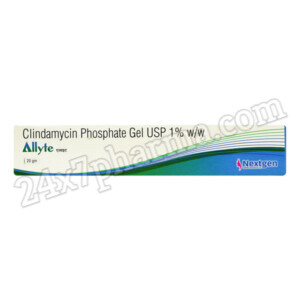
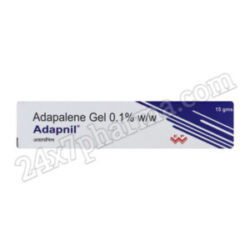
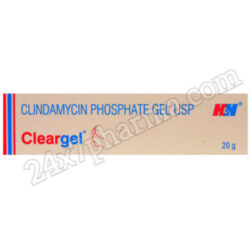
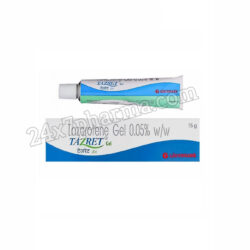
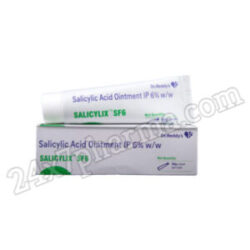
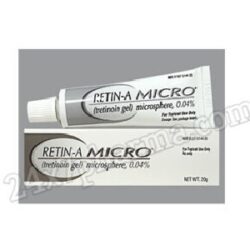
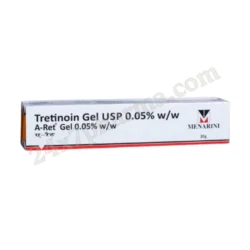
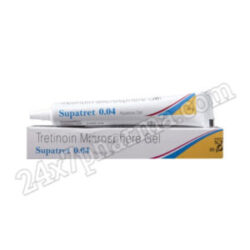
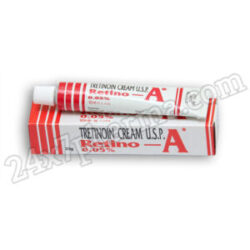
Reviews
Clear filtersThere are no reviews yet.